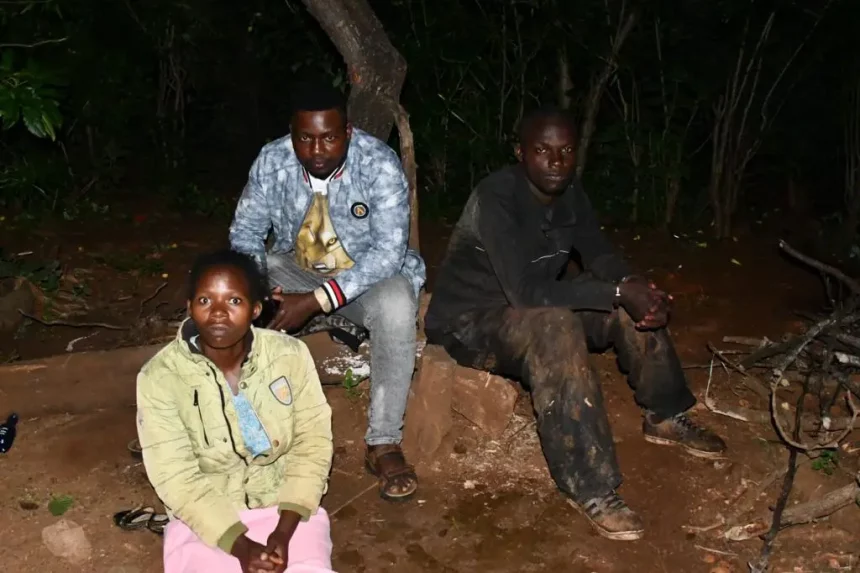Three suspects have been arrested in connection with the illegal trade of donkey meat in Embu County.
In a statement, the National Police Service (NPS) said the suspects were among a group of men who were found slaughtering donkeys at a homestead in Kajekeru village at around 1:34 am on Friday, December 22.
The suspects are said to have attempted to attack officers from Runyenjes Police Station and the Directorate of Criminal Investigations (DCI) in Embu East following the raid, forcing the officers to fire warning shots in the air.
“Upon encounter, the men armed with crude weapons attempted an attack on the Officers prompting them to fire warning shots in the air,” NPS said.
Police managed to arrest three suspects including a woman during the night raid.
The suspects are Stanley Thuranira, George Maringa and Anastasia Wanyaga.
20 freshly slaughtered donkey carcasses and a motor vehicle – a Toyota Noah – were found at the scene.
“Other items recovered include 3 pangas, 12 knives, one bow and 6 arrows,” police said further commending members of the public for sharing information regarding the illegal business.
The incident comes a month after at least 30 donkey carcasses were recovered during a raid at Marura village in Maragua, Murang’a County.
The discovery was made as the residents were trying to help push a car which had gotten stuck in the mud while leaving the homestead. The meat is said to have been destined for Kayole in Nairobi.
The car was fully packed with the meat which the residents demanded to know the source and after confronting the driver, he directed them to the place where the donkeys had been slaughtered.
Residents said they had never suspected any fishy activity taking place at the homestead.
Peter Mwangi, a resident, said the culprits sourced the animals from elsewhere as the area has no donkeys.
“These people seem to have perfected their skill in slaughtering the donkeys and we now suspect they have been doing it for some time,” Mwangi said.
“Our biggest worry is that we might have consumed the meat after it is supplied to the local butcheries,” he added.



